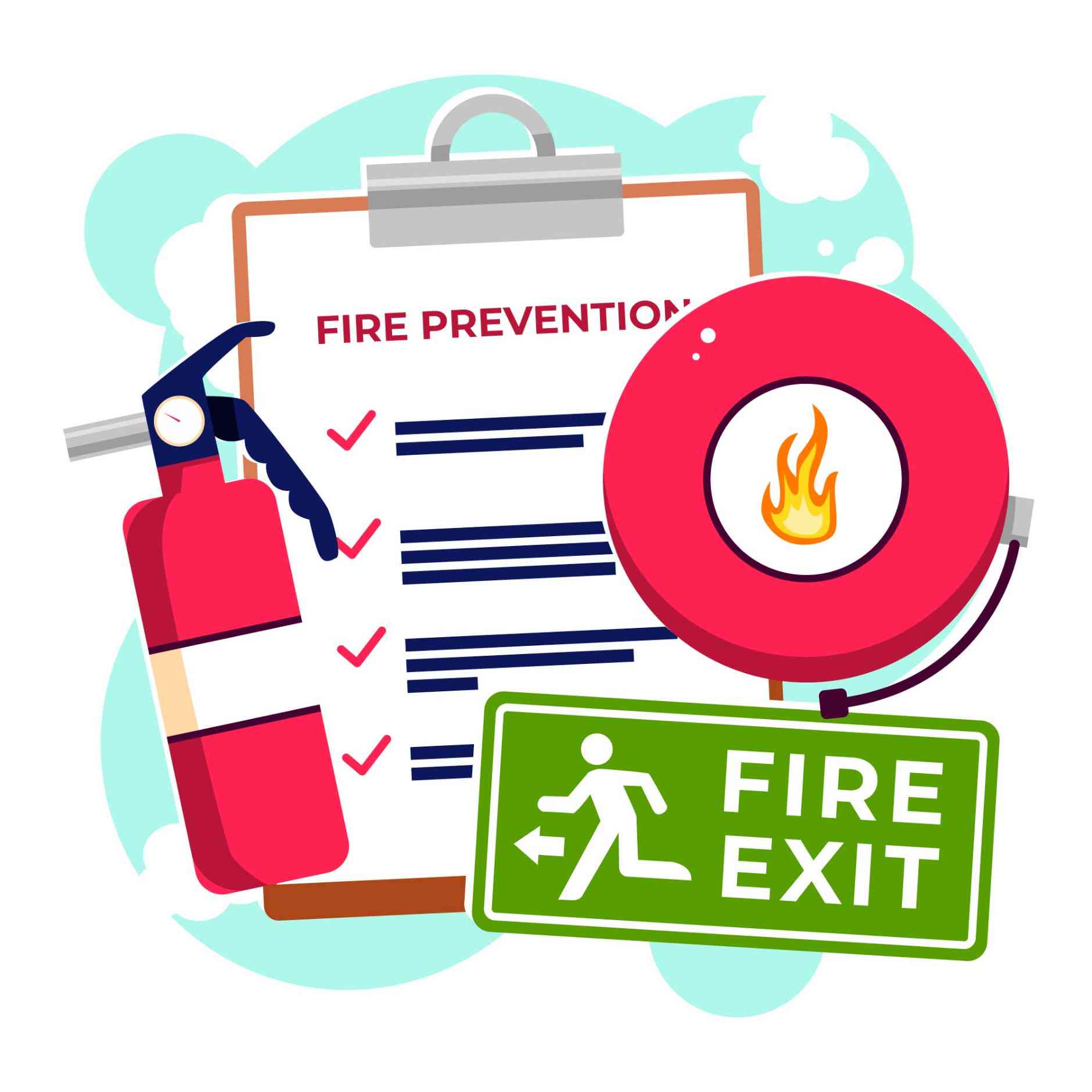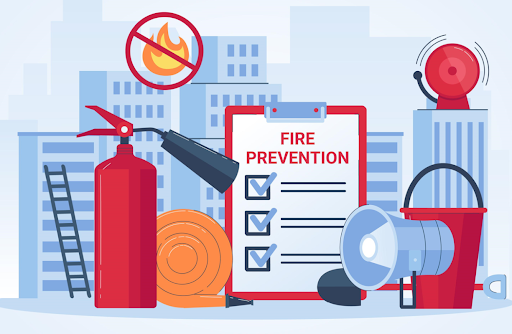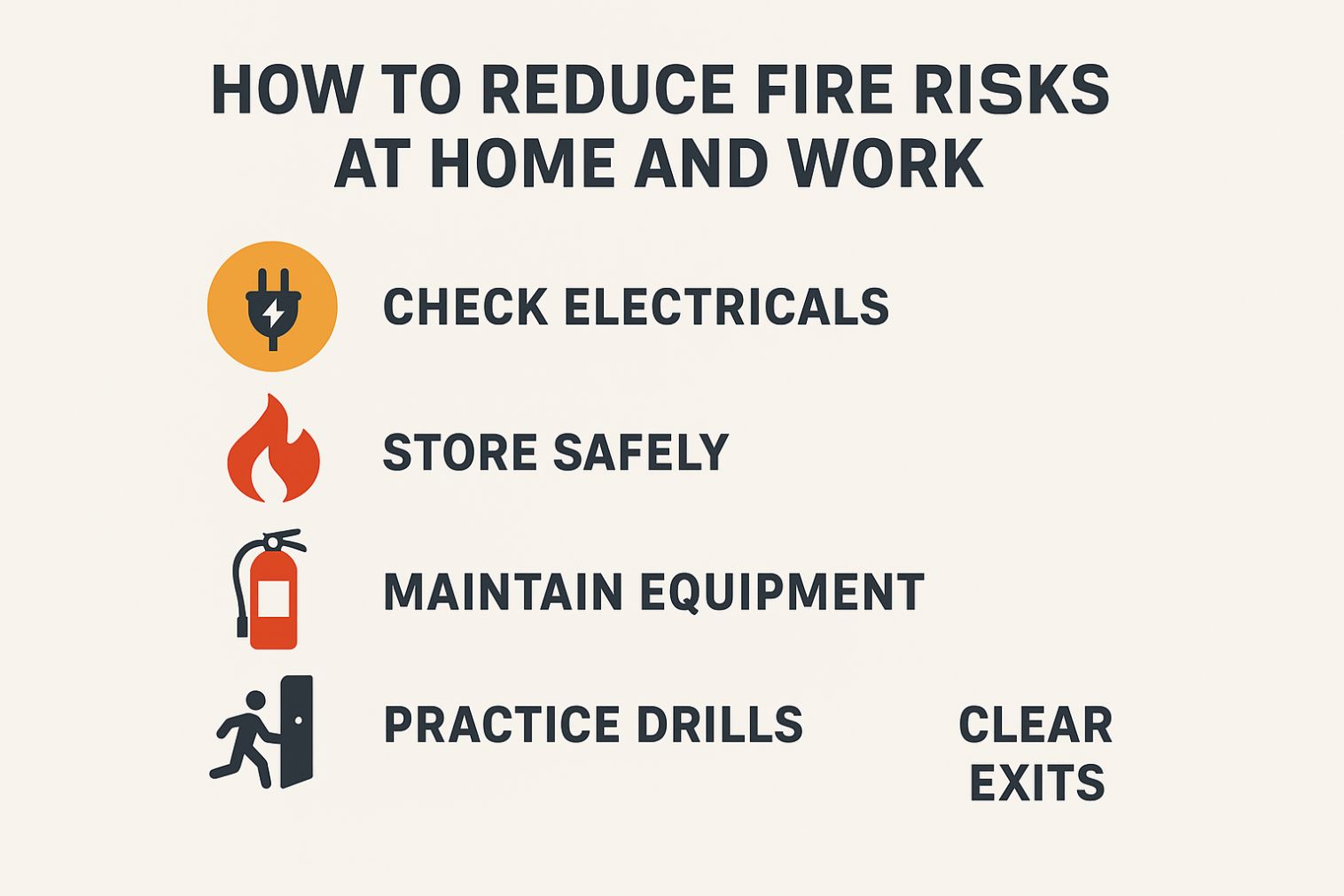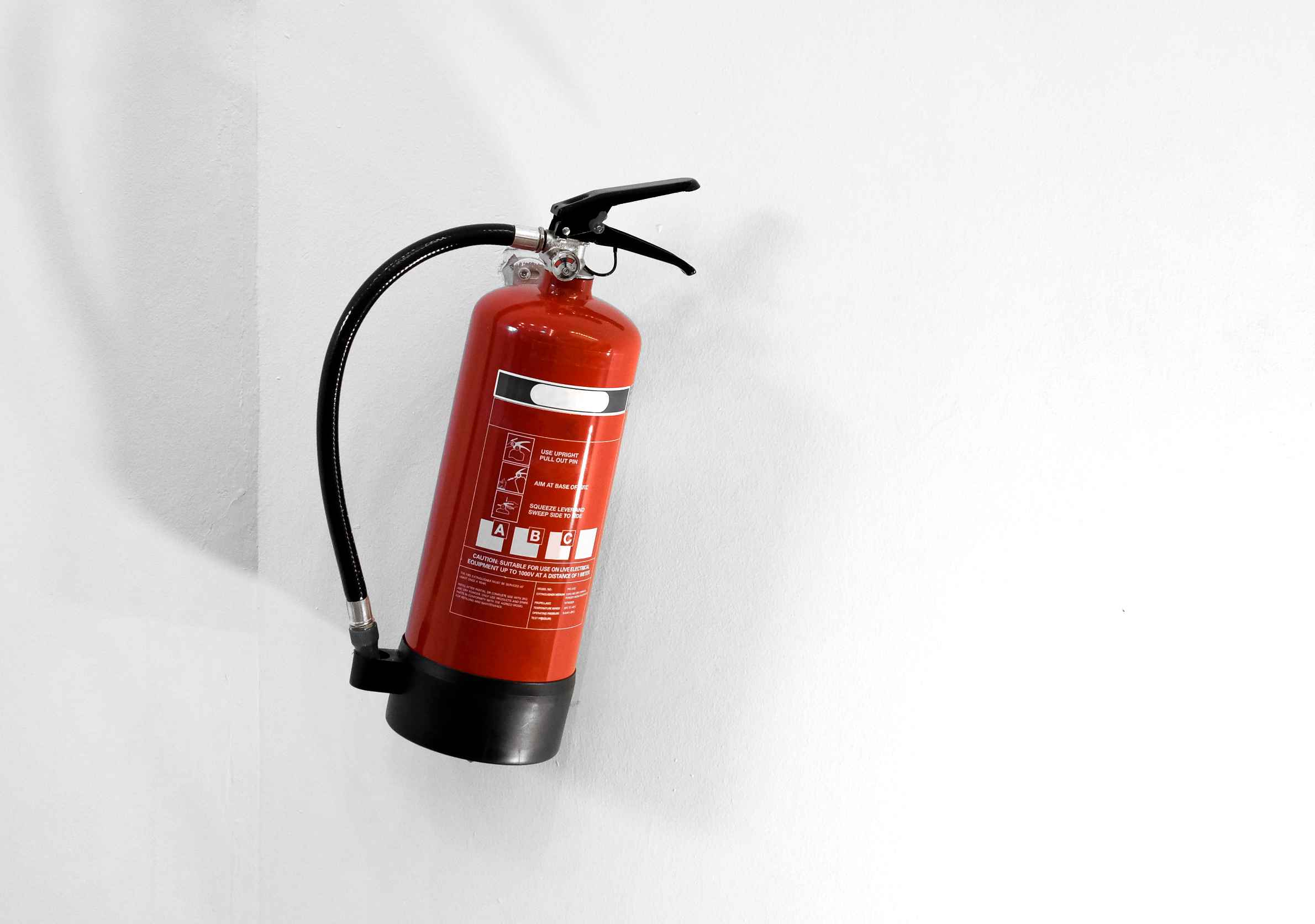I’ll admit it—I’ve never really given fire safety much thought until I saw a local fire that left families devastated. That’s when it hit me—how much we overlook potential fire risks in our daily lives. It’s easy to forget, but understanding fire hazards and knowing how to respond can save lives, property, and businesses.
Fire risks are more than just “what could happen.” They’re about preventing accidents, protecting your home or business, and ensuring everyone knows what to do when a fire occurs. In this blog, I’ll explain why understanding fire risks is so important and how you can mitigate these dangers before they become a serious problem.
Why Should You Be Concerned About Fire Risks?
Why is Recognizing Fire Hazards Important?
A fire doesn’t just happen out of nowhere. It starts with a risk—faulty wiring, flammable materials, or blocked fire exits. Recognizing these fire hazards early can help you avoid dangerous situations before they escalate.
When you know where the risks are, you can take simple steps to prevent them. From keeping your space tidy and clutter-free to inspecting electrical systems regularly, small actions make a huge difference in fire prevention.
How Do Safe Practices Prevent Fires?

Fire safety starts with everyday actions. Simple steps like turning off appliances when not in use, storing flammable materials away from heat sources, and keeping fire extinguishers nearby can dramatically lower your risk. Understanding fire hazards also means understanding safe practices for handling everyday items that could easily cause a fire, like gasoline or cleaning chemicals.
Also Read: Why Must Fire Extinguishers Be Routinely Maintained?
How Does Fire Awareness Help in Emergency Situations?
Knowing fire risks doesn’t just help you prevent them—it also prepares you for when a fire does happen. When you’re aware of what could go wrong, you can create an emergency plan. Practice evacuation drills, know the nearest exits, and ensure everyone knows how to use a fire extinguisher.
How Fire Risk Awareness Protects Lives and Property

How Does Understanding Fire Risks Reduce Injuries?
A fire isn’t something anyone wants to experience, but it’s something we can prepare for. When you understand the risks and have a plan in place, the chances of injury or worse drastically drop. Knowing where to go in case of a fire, how to safely evacuate, and having an action plan can reduce panic and confusion, making it easier for everyone to get out safely.
How Can Fire Safety Reduce Property Damage?
Property damage caused by fire can be devastating, whether it’s your home, your business, or your equipment. By assessing fire risks, you can make changes to prevent damage. For example, you can remove fire hazards like flammable materials, install fire-resistant doors, and ensure sprinkler systems are working. All of these measures help reduce the likelihood of destruction in case of a fire.
Can Fire Safety Support Business Continuity?
For businesses, understanding fire risks is about more than keeping things running smoothly. It’s about minimizing downtime after an incident. By being proactive and addressing fire hazards, businesses can ensure they’re compliant with safety regulations and keep operations intact if disaster strikes.
The Role of Effective Fire Response
How Does Fire Risk Awareness Aid in Quick Evacuations?
Understanding fire risks allows you to plan for safe and fast evacuations. When you know what hazards to look out for, you can clearly mark escape routes and train employees or family members on what to do in case of a fire. This proactive planning makes it easier for people to exit buildings quickly, reducing the chance of injury or confusion.
How Can a Prepared Response Save Lives?
It’s not enough to just know there’s a risk; you also need to know how to respond. In case of a fire, understanding the best way to handle a fire extinguisher or when to use emergency equipment can control the situation early on. The more people know about fire risks, the less likely they are to panic, leading to a more organized and effective emergency response.
Also Read : Importance of Fire Extinguishers Maintenance
Legal and Regulatory Fire Safety Compliance
Why is Fire Safety Important for Legal Compliance?
In addition to being a life-saving measure, understanding fire risks is also necessary for meeting legal and regulatory safety standards. Public buildings, workplaces, and homes are required to meet specific fire safety regulations to ensure safety. Knowing these rules helps ensure compliance and prevent legal issues down the road.
What Happens if Fire Regulations Are Ignored?
Ignoring fire risks can lead to legal penalties. Businesses that don’t comply with fire safety standards can face fines, shutdowns, or worse—damage from a fire. It’s important to not only understand fire hazards but also to stay informed about local laws and regulations to avoid these consequences.
How Can You Reduce Fire Risks at Home and at Work?

Here are a few ways you can lower fire risks and keep your property safe:
- Regularly inspect electrical systems for wear or damage.
- Store flammable materials away from heat sources.
- Maintain fire safety equipment, such as smoke detectors and extinguishers.
- Practice fire drills regularly with everyone in your household or business.
- Keep exits clear and make sure everyone knows evacuation routes.
By taking these steps, you can create a safer environment for everyone.
FAQ: Answering Your Fire Safety Concerns
What Are Common Fire Hazards at Home?
Common fire hazards at home include faulty electrical wiring, unattended candles, and flammable materials like paper and cloth near heat sources. It’s essential to check smoke detectors regularly, avoid overloading outlets, and store flammable items properly.
How Can I Protect My Business from Fire Risks?
Regular fire risk assessments, installing fire-resistant materials, and keeping emergency exits clear are key ways to reduce risks. It’s also a good idea to train employees in fire safety procedures and ensure that fire extinguishers are easily accessible.
What Should I Do if I Smell Smoke in My Building?
If you smell smoke, it’s crucial to stay calm and act quickly. First, check for visible signs of fire. If you spot a fire, evacuate immediately, using designated exits. If you can’t find the source, call emergency services and evacuate as a precaution.
How Often Should I Check My Fire Safety Equipment?
You should check your smoke detectors and fire extinguishers monthly. Replace the batteries in your smoke detectors at least once a year. For fire extinguishers, ensure they are not expired and that they are fully charged.
Fire Safety Is a Lifelong Commitment
Your Fire Safety Takeaway
Understanding fire risks isn’t just a precaution; it’s a commitment to protecting lives, property, and even your business. The more you know about fire hazards and how to respond, the better prepared you’ll be if a fire happens.
So, take action today. Inspect your home or workplace, make sure your fire safety plans are in place, and encourage those around you to do the same. It’s always better to be safe than sorry—especially when it comes to fire risks.








